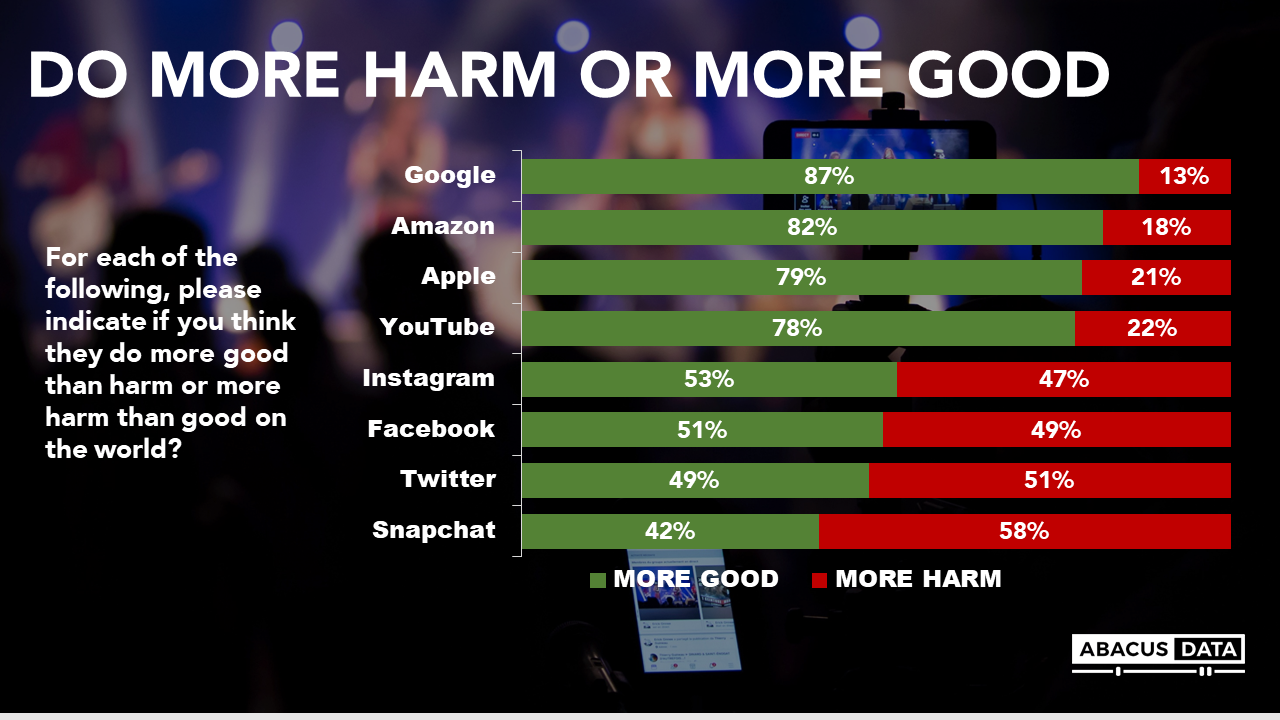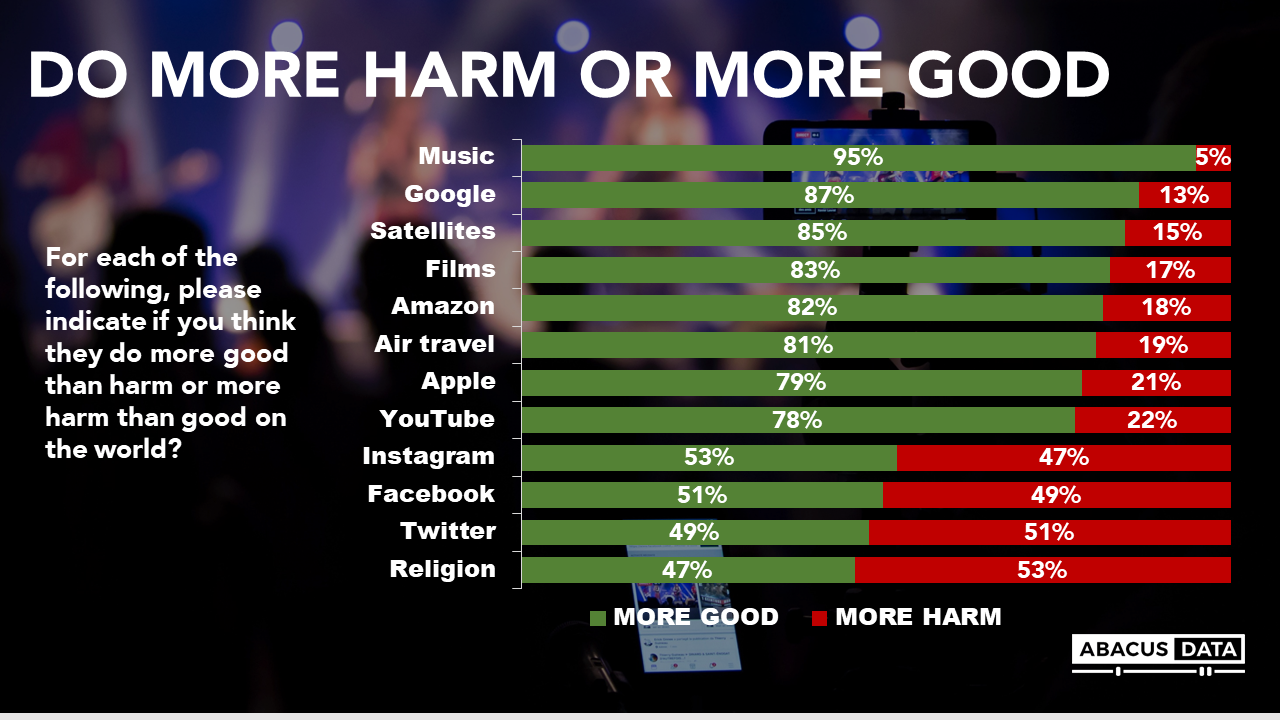Digital Brand Reputations? They aren’t all equal.
June 29, 2018
In our latest poll (not commissioned by any company or group) we asked people whether they thought a series of contemporary digital brands were doing more good for the world or more harm. Here are the highlights of our findings:
Google, Amazon, Apple, and YouTube scored very well, with large majorities saying they see more good than bad from these services.
Results were mixed for Instagram, Facebook, and Twitter. In each case roughly as many people said these platforms were bringing more harm to the world as said “more good”. The most negative opinions were for Snapchat.

To put these results in a bit more context, we asked the same question about other technologies and some cultural influences too. Google, Amazon, Apple and YouTube results are in a range similar to those for satellites, air travel, music and film. Facebook and Twitter results are closer to those found for religion.

We examined difference across demographic or political groups and noticed:
– Google’s popularity is consistently high across different groups.
– Women are slightly more positive than men about Facebook and Twitter.
– Younger people are slightly more positive towards Twitter. Conservatives are slightly more negative.
– NDP voters are more critical about the impact of religion.
– Music is pretty universally seen as a force for good.






The Upshot
Bruce Anderson: “The Internet has changed life and started a new chapter in the story of civilization. The power of a search engine to help people learn more, more quickly and to add convenience to their lives has earned it a very positive reputation – it’s value to society is almost universally appreciated. The ability to access music, film, TV anytime and anywhere, through Apple platforms and products is one of the world’s greatest consumer satisfaction and business success stories in decades. Amazon is re-defining convenience and the modern shopping experience.
Facebook and Twitter are struggling with mixed opinions – many see the positive and the potential to bring people together, but as many see more destructive or harmful influences.
This is obviously topical and relevant in political circles today given the way these platforms can be used to mislead voters and distort facts – but the criticisms are probably also about the way in which these platforms can exacerbate cultural divisions and give oxygen to those with bullying or hostile instincts. For a pretty considerable number of people, social media come off as more anti-social in their impact.”
Methodology
Our survey was conducted online with 1,200 Canadians aged 18 and over from May 24 to 28, 2018. A random sample of panelists was invited to complete the survey from randomly selected Canadian adults who are members of the Maru Voice Canada online panel.
The Marketing Research and Intelligence Association policy limits statements about margins of sampling error for most online surveys. The margin of error for a comparable probability-based random sample of the same size is +/- 2.9%, 19 times out of 20. The data were weighted according to census data to ensure that the sample matched Canada’s population according to age, gender, educational attainment, and region. Totals may not add up to 100 due to rounding.
Abacus Data Inc.
We offer global research capacity with a strong focus on customer service, attention to detail and value-added insight. Our team combines the experience of our Chairman Bruce Anderson, one of Canada’s leading research executives for two decades, with the energy, creativity and research expertise of CEO David Coletto, PhD. For more information, visit our website at http://www.abacusdata.ca/




